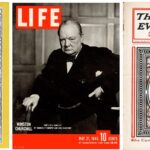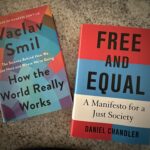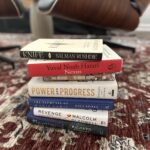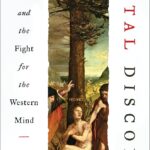
“The survey, called “Reading at Risk,” is based on data from “The Survey of Public Participation in the Arts,” conducted by the Census Bureau in 2002,” writes Bruce Weber in the New York Times. “Among its findings are that fewer than half of Americans over 18 now read novels, short stories, plays or poetry; that the consumer pool for books of all kinds has diminished; and that the pace at which the nation is losing readers, especially young readers, is quickening. In addition it finds that the downward trend holds in virtually all demographic areas.”
This is pretty sobering stuff for those concerned about literacy and what it means not only for individuals, but for the state of the country as well. The NEA survey found correlations between good readers and good citizenship, noting that readers are far more likely than nonreaders to do volunteer and charity work and go to art museums, performing arts events and ballgames, writes Weber. “Whatever good things the new electronic media bring, they also seem to be creating a decline in cultural and civic participation,” said Dana Gioia, the chairman of the endowment, who presided over a discussion of the survey results at the New York Public Library this morning. “Of literary readers, 43 percent perform charity work; only 17 percent of nonreaders do. That’s not a subtle difference.”
More from the article written by Bruce Weber: “The Census Bureau study upon which the survey was based measured the number of adult Americans who attended live performances of theater, music, dance and other arts; visited museums; watched broadcasts of arts programs; or read literature in the past year. The survey sample — 17,135 people — makes it one of the largest studies ever conducted on the subject of arts participation, and the data were compared with similar studies from 1982 and 1992. In the literature segment respondents were asked whether they had, during the previous 12 months, without the impetus of a school or work assignment, read any novels, short stories, poems or plays in their leisure time.
“Their answers show that just over half — 56.6 percent — read a book of any kind in the previous year, down from 60.9 percent a decade earlier. Readers of literature fell even more precipitously, to 46.7 percent of the adult population, down from 54 percent in 1992 and 56.9 percent in 1982, which means that in the last decade the erosion accelerated significantly. The literary reading public lost 5 percent of its girth between 1982 and 1992; another 14 percent dropped away in the following decade. And though the number of readers of literature is about the same now as it was in 1982 — about 96 million people — the American population as a whole has increased by almost 40 million.
“The survey found that men (37.6 percent) were doing less literary reading than women (55.1 percent); that Hispanics (26.5 percent) were doing less than African-Americans (37.1 percent) and whites (51.4 percent); but that all categories were declining. The steepest declines of any demographic group are among the youngest adults. In 1982, 59.8 percent of 18-to-24-year-olds read literature; by 2002 that figure had dropped to 42.8 percent. In the 25-to-34 age group, the percentage of literary readers dropped to 47.7 from 62.1 over the same period.”
Read the report here.





